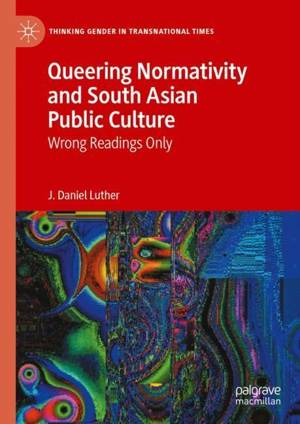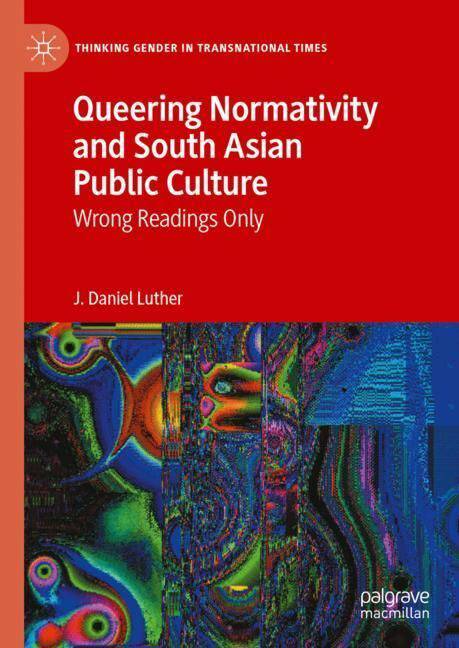
- Afhalen na 1 uur in een winkel met voorraad
- Gratis thuislevering in België vanaf € 30
- Ruim aanbod met 7 miljoen producten
- Afhalen na 1 uur in een winkel met voorraad
- Gratis thuislevering in België vanaf € 30
- Ruim aanbod met 7 miljoen producten
Zoeken
€ 126,95
+ 253 punten
Uitvoering
Omschrijving
This book develops a queer methodology to analyse a queer archive for the impact of normativity on subjecthood and the ways in which it shapes and curtails gender and sexuality. Chapters demonstrate how normativity functions to mask its own operation, is internalised by subjects, and is continually reproduced through discourse and in material ways. In seeking to make visible the functioning of normativity, the book performs a task of queering normativity by querying that which appears as natural in South Asian public culture. The book engages with both the consolidation and the unsettling of normativity through artefacts of South Asian public culture including canonical figures such as Rabindranath Tagore, literary and cinematic texts, Bollywood films, advertisements, social media posts, and ubiquitous ephemera in South Asia and beyond. Through these texts, the author unpacks the construct of canon, the nation, woman as a post-colonial subject, the home and the child, marriage, same-sex sexuality and identity.
This book will be of interest to scholars and students studying and researching Queer Studies, Gender and Sexuality Studies, South Asian Studies, Cultural Studies, Literary Studies, Film Studies, and Media Studies.
This book will be of interest to scholars and students studying and researching Queer Studies, Gender and Sexuality Studies, South Asian Studies, Cultural Studies, Literary Studies, Film Studies, and Media Studies.
Specificaties
Betrokkenen
- Auteur(s):
- Uitgeverij:
Inhoud
- Aantal bladzijden:
- 259
- Taal:
- Engels
- Reeks:
Eigenschappen
- Productcode (EAN):
- 9783031395086
- Verschijningsdatum:
- 2/10/2023
- Uitvoering:
- Hardcover
- Formaat:
- Genaaid
- Afmetingen:
- 148 mm x 210 mm
- Gewicht:
- 480 g

Alleen bij Standaard Boekhandel
+ 253 punten op je klantenkaart van Standaard Boekhandel
Beoordelingen
We publiceren alleen reviews die voldoen aan de voorwaarden voor reviews. Bekijk onze voorwaarden voor reviews.











